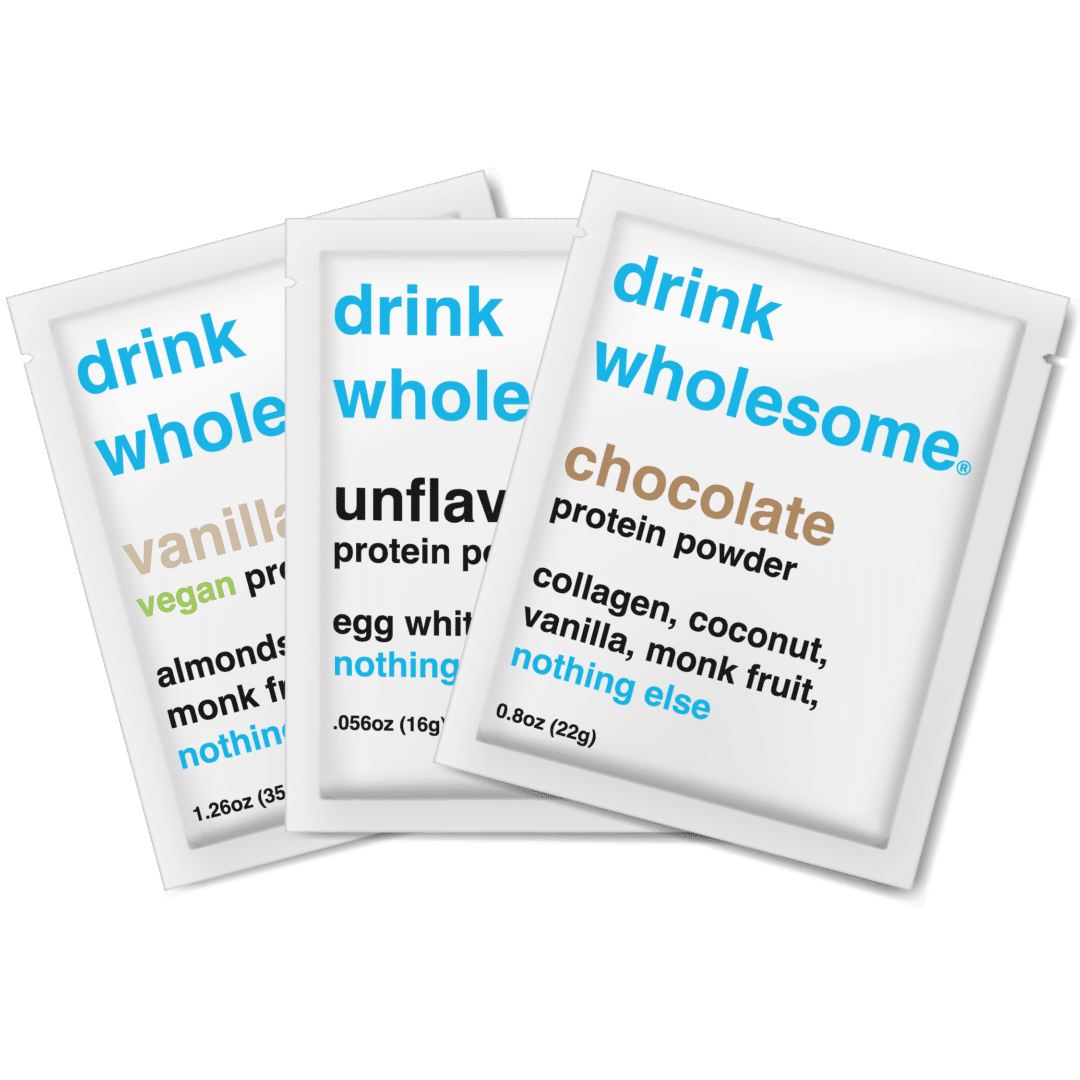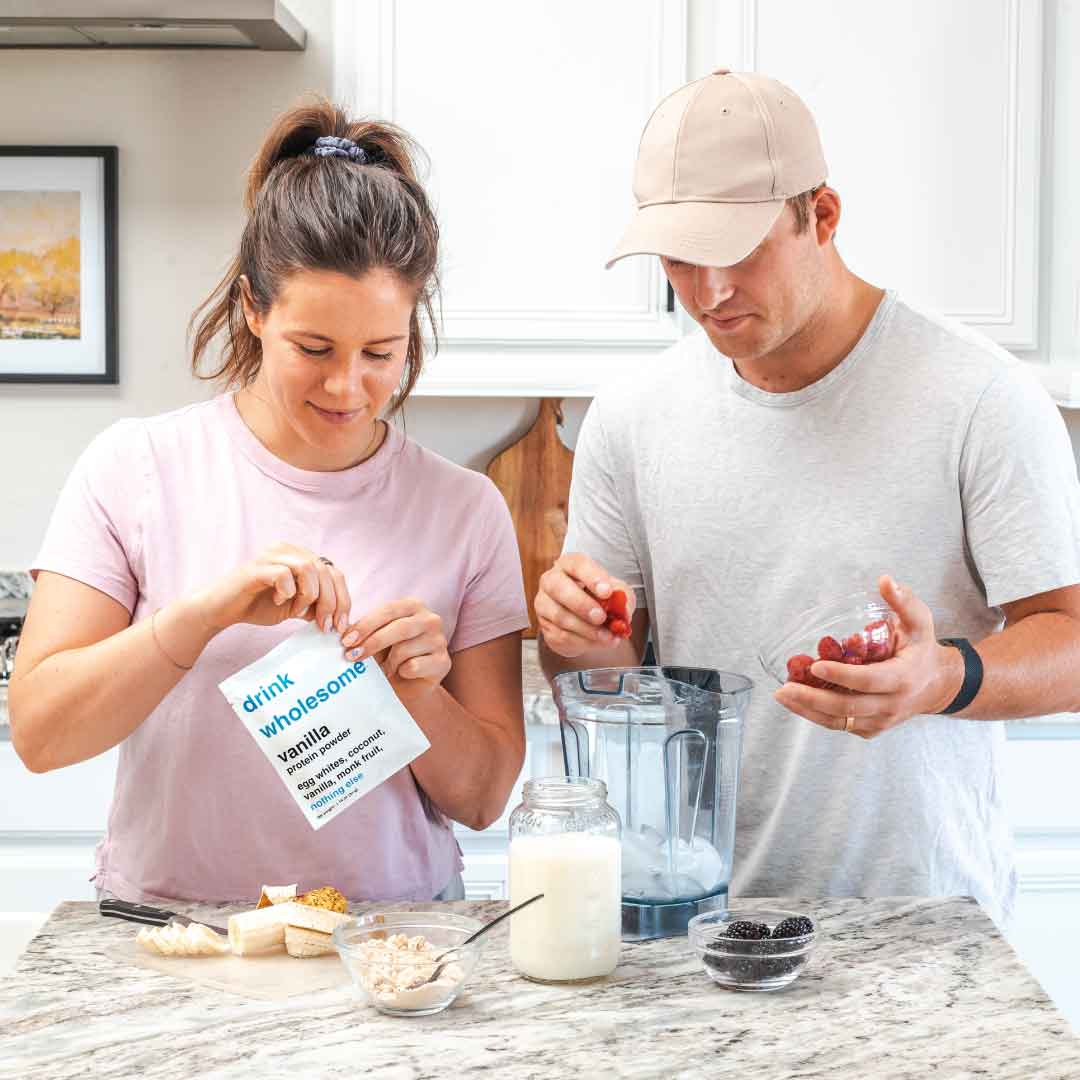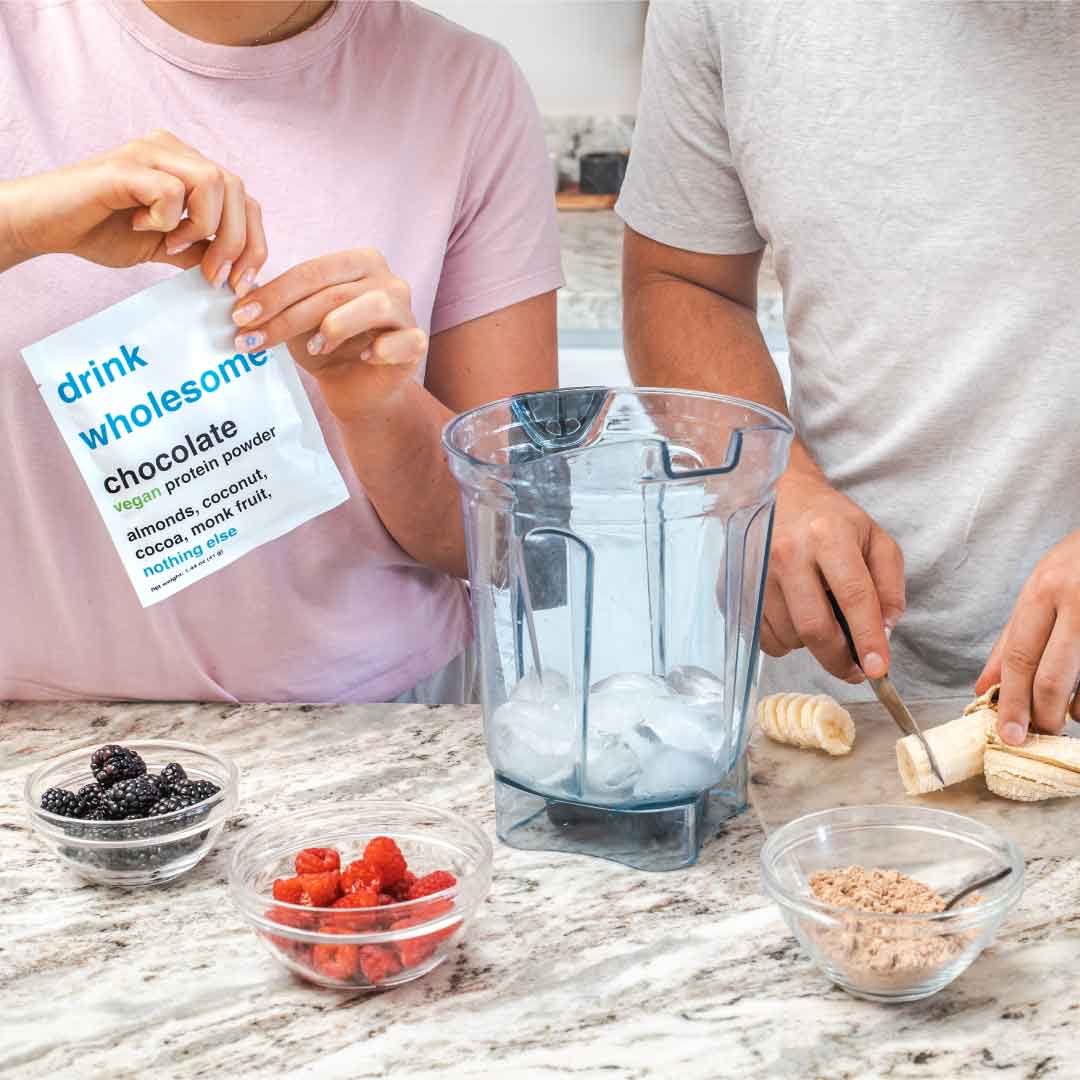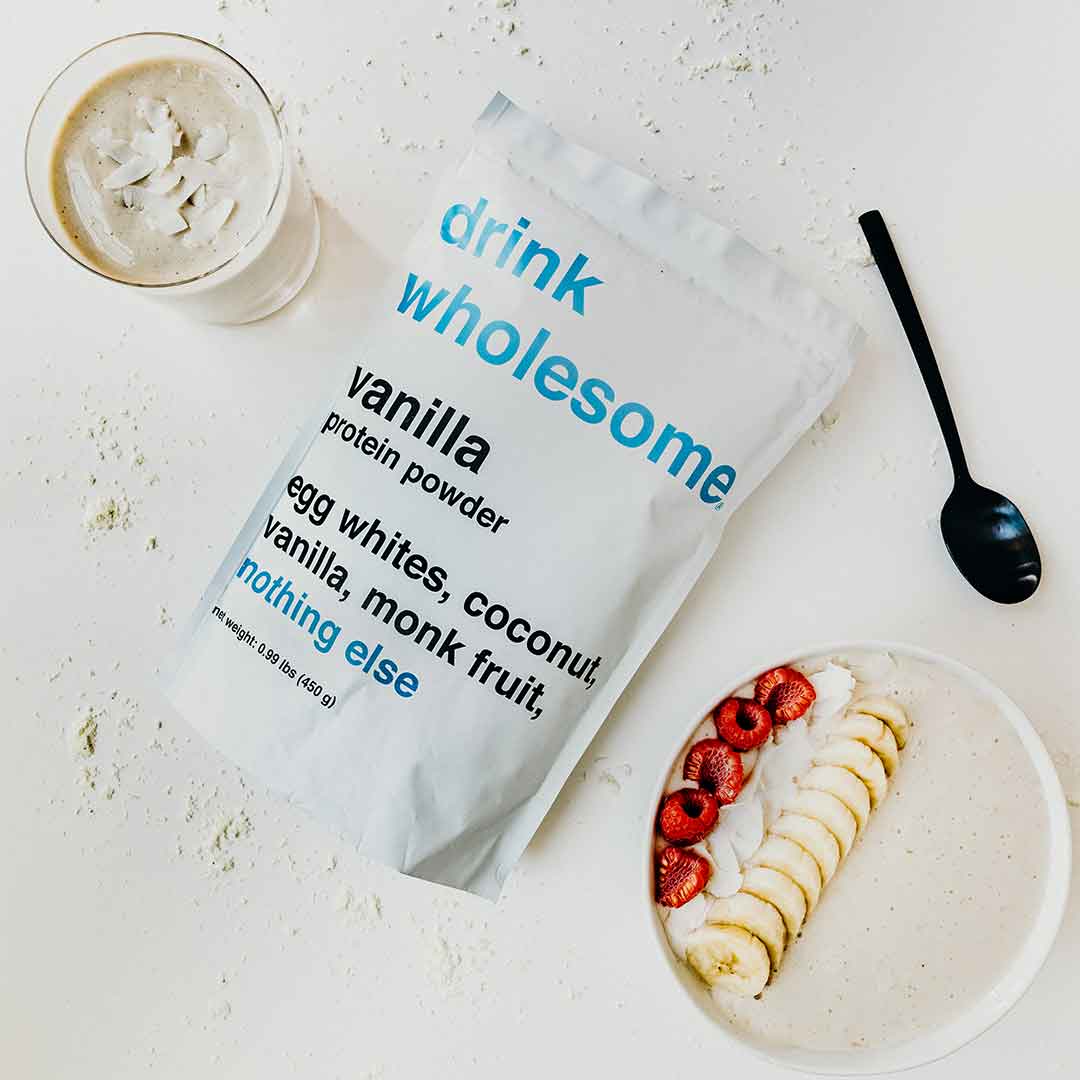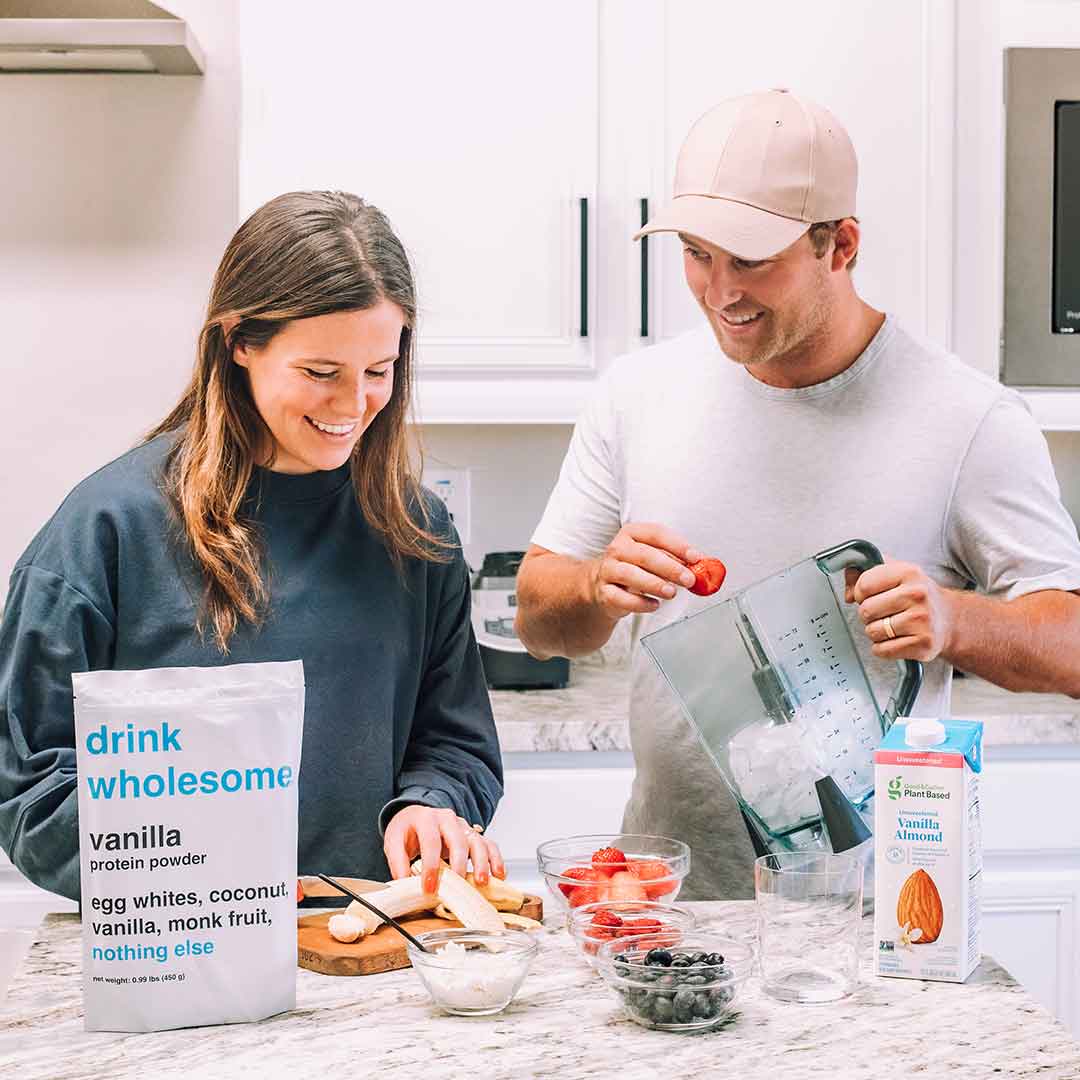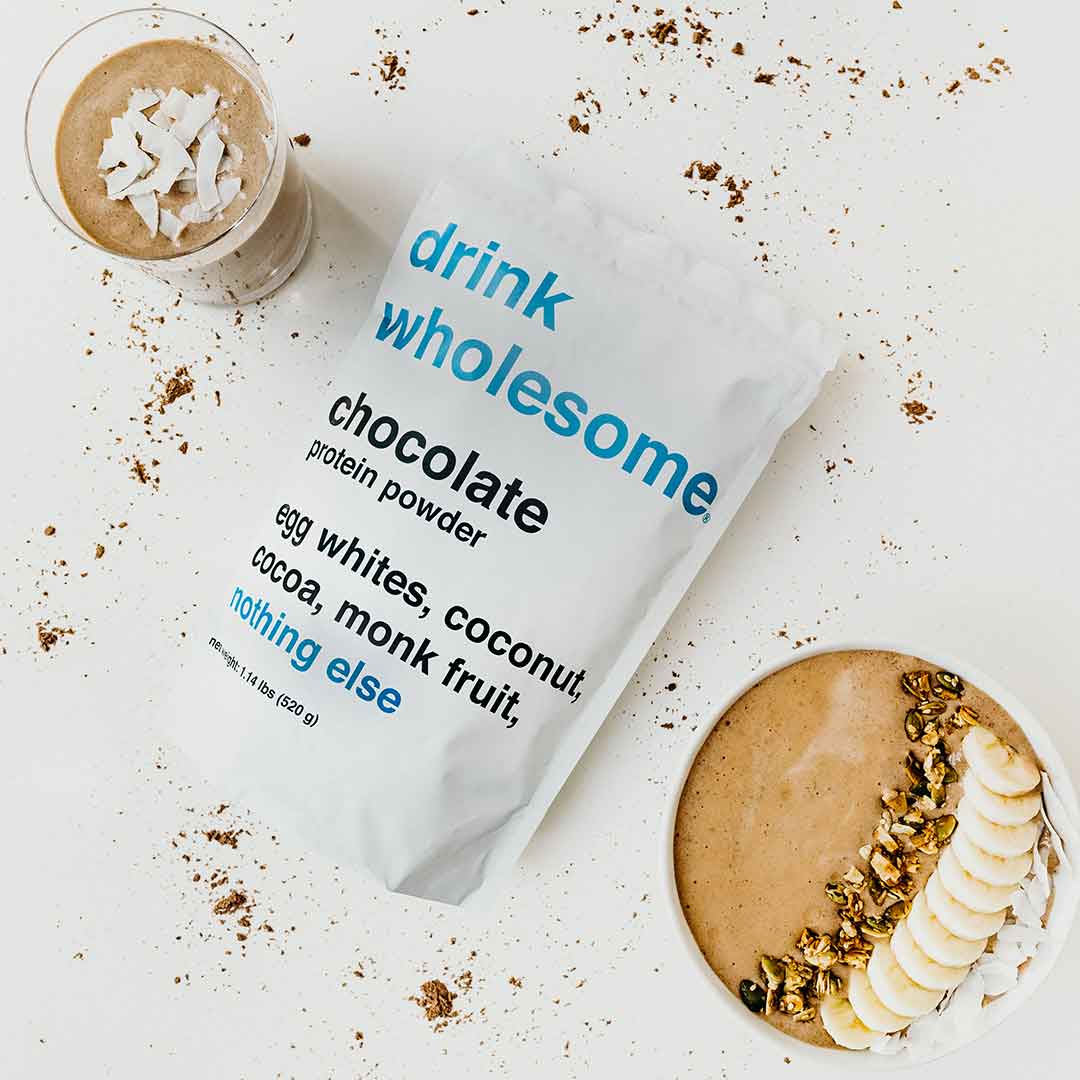drink wholesome is the best lactation protein powder.
Written by Jack Schrupp & endorsed by Baylee Reller, RDN
What is lactation?
Lactation occurs after childbirth when hormonal changes in the mother’s body trigger the production of breast milk. It is an important part of infant nutrition, and plays a significant role in the physical and emotional bonding between a mother and her child.
The act of breastfeeding has several benefits for both the mother and child, including reduced risk of infections and improved health outcomes. Breast milk is made up of essential nutrients such as proteins, fats, carbohydrates, as well as vitamins and antibodies that help protect the newborn from infection and illness.
Is protein powder good for lactation?
Protein powder can be beneficial for lactating mothers who are not getting enough protein in their diet, as dietary protein is essential for the production of breast milk. Research shows that the maternal diet can impact breast milk macronutrient composition, that is, the foods that the mother eats during lactation may make a difference in terms of the nutritional content of the breast milk.
Maternal diets high in protein, for example, have been associated with higher protein and energy contents in breast milk. This, in turn, means that the infant is getting more protein and calories, both of which are essential for growth and development.
Eating enough and eating a balanced diet is the best way to promote healthy breast milk production. Eating enough is important because breastfeeding mothers burn more calories than most women. The Centers for Disease Control and Prevention (CDC) recommends that breastfeeding mothers eat an extra 330 to 400 calories per day.
Eating a balanced diet is important because it is the only way to ensure that the infant is meeting its nutritional needs. Remember, nutrients are transferred from the mother to the infant.
Most mothers should be able to get all the nutrients they need from protein sources like eggs, fish, and meat. That said, getting enough of certain nutrients, like protein, can be hard for some women, especially those with dietary restrictions.
Breastfeeding mothers need 1.7–1.9 grams of protein per kilogram of body weight per day. Adding a scoop of protein powder to your diet is an easy way to ensure that you are meeting these recommendations. That said, not all protein powders are created equal.


